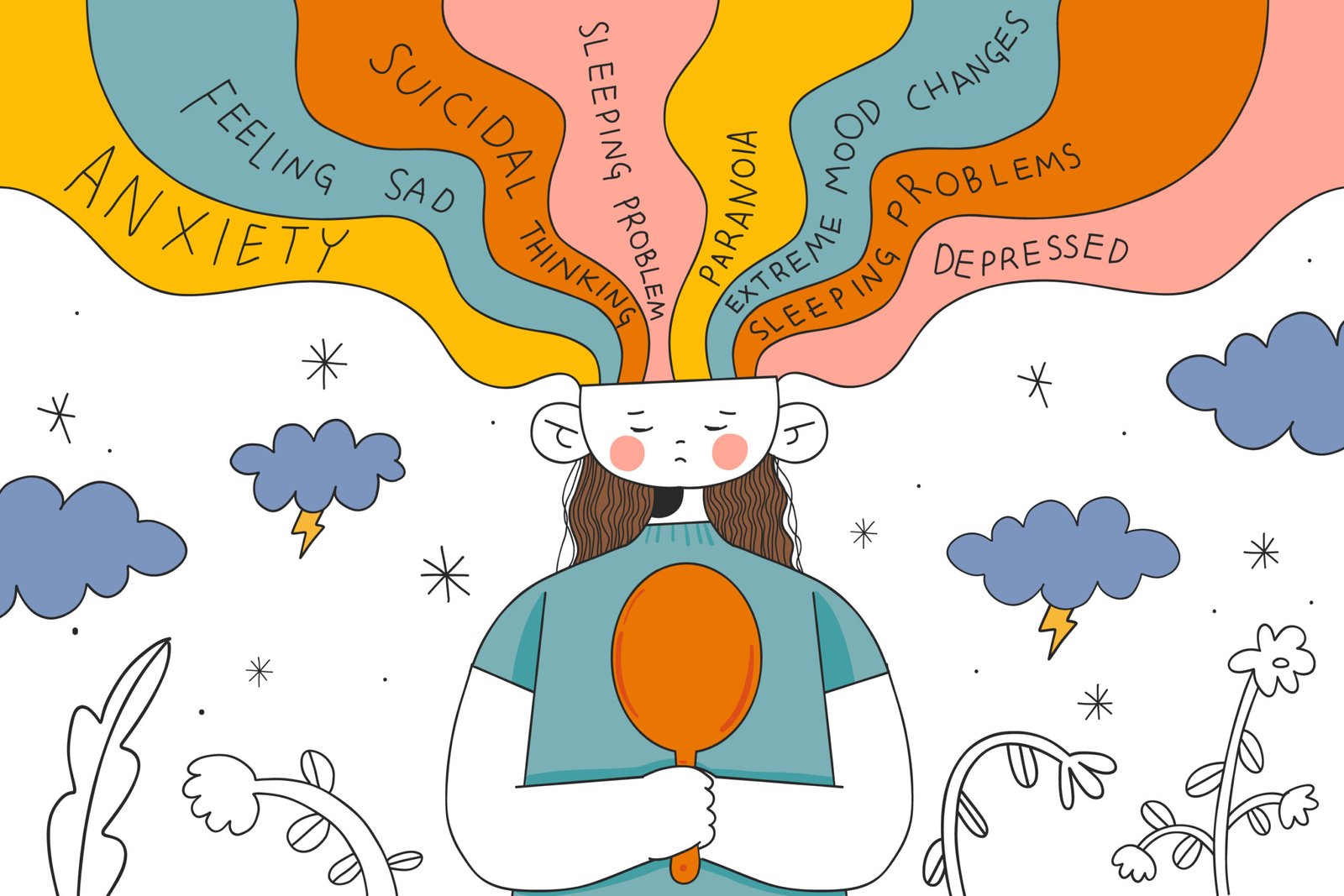Now Reading: 7 Reasons Why Emotional Intelligence Matters & How You Can Improve It
-
01
7 Reasons Why Emotional Intelligence Matters & How You Can Improve It
7 Reasons Why Emotional Intelligence Matters & How You Can Improve It

Emotional Intelligence: Why It Matters & How to Improve It
Success in today’s busy world is not just about IQ anymore. Intelligence may open doors but emotional intelligence determines how far you go — not just in professional life but in personal life too. From creating strong relationships to leading, the power to comprehend and navigate emotions has become the game-changer of the new world.
But what is emotional intelligence, anyway? Why do we need it? And most importantly — how can I develop it in my life? Let’s delve into these questions in further detail.
What Is Emotional Intelligence?
Emotional Intelligence (EI or EQ) is the capacity to know, comprehend, and regulate your own feelings and to be able to know and affect the feelings of others.
While IQ deals with cognitive skills, emotional intelligence handles self-awareness, empathy, effective communication, and resilience. It is not about inhibiting emotions but understanding them well and utilizing them skillfully.
Psychologist Daniel Goleman, who made the concept famous, has five broad elements of Social Intelligence:
- Self-Awareness – Being aware of your own emotions and how they influence your thought process and actions.
- Self-Regulation – Regulating emotions in positive ways, particularly during stressful conditions.
- Motivation – Remaining focused, positive, and goal-oriented even in the face of adversity.
- Empathy – Recognizing and sharing other people’s feelings.
- Social Skills – Developing effective relationships through communication, cooperation, and conflict management.
These pieces all coming together form the basis of emotional intelligence — a set of skills that affects nearly every aspect of your life.
7 Reasons Why Emotional Intelligence Matters
1. It Improves Relationships
In friendships, family, or romantic relationships, emotional intelligence solidifies connections. Individuals with high EQ know how to listen, understand feelings, and resolve conflicts without aggression.
Example: Consider a couple arguing. Rather than yelling, a relationship partner with high emotional intelligence stops, listens, and shares their feelings in a calm manner. This reduces conflict to resolution.
2. It Increases Career Success
Technical skills may land you a job, but emotional intelligence will elevate you to the top. Employers seek individuals who are adept at managing stress, coping with change, and collaborating with others. Highly effective leaders with high EQ are able to gain trust, motivate staff, and develop strong work cultures.
Example: A project manager who has missed a deadline can blame the team. But a high EQ leader would handle his own frustration, talk about problems calmly, and concentrate on solutions — improving morale rather than destroying it.
3. It Improves Mental Health
Stress, anxiety, and emotional exhaustion are the order of the day. Emotional intelligence provides you with coping skills so that you remain strong under pressure. Those with high EQ tend to remain emotionally stable and not get overwhelmed.
4. It Encourages Smarter Decision-Making
Decisions go awry when emotions are high. Through emotional intelligence, you learn to stop, think, and make informed decisions rather than reactive ones.
5. It Fosters Personal Development
High EQ promotes self-awareness and self-development. You become more conscious of your strengths, weaknesses, and emotional triggers — and this makes you develop as a person and as an employee.
6. It Facilitates Conflict Resolution
Conflict is inevitable in life — at work or at home. Emotional intelligence will show you how to resolve conflicts with respect while keeping the relationship intact.
7. It Develops Leadership Skills
The greatest leaders are not only intelligent; they possess emotional intelligence. They inspire, engage, and energize people to create a positive culture that makes teams excel.
How to Enhance Emotional Intelligence: Actionable Steps
Social Intelligence develops with time and practice. Here are some actionable steps to begin:
1. Practice Self-Awareness
Maintain a daily journal where you check in on your feelings.
Ask yourself: “What am I feeling right now? Why am I feeling this way?”
Observe how your feelings affect your responses and choices.
2. Master Controlling Your Emotions
Take a moment before you react in difficult situations.
Practice breathing exercises, meditation, or mindfulness exercises.
Substitute reaction with reflection.
3. Cultivate Empathy
Observe non-verbal signals such as tone of voice, body language, and facial expressions.
Place yourself in the other person’s place before you respond.
Practice empathy — even if you don’t completely agree.
4. Improve Communication Skills
Practice the use of clear and respectful communication.
Practice active listening — don’t wait for your turn to talk.
Use “I” statements to express your emotions, not blame.
5. Stay Motivated
Set individual and career goals that thrill you.
Celebrate little victories to remain inspired.
Surround yourself with positive, encouraging people.
6. Seek Constructive Feedback
Ask friends, colleagues, or mentors how you manage emotions.
Keep an open mind to criticism and avoid defensiveness.
Use feedback to improve.
7. Notice Your Triggers
Identify the things that usually anger you — traffic, criticism, or deadlines.
Plan ways on how to deal with these triggers.
With practice, you’ll be less reactive and more equilibrated.
Real-Life Examples of Emotional Intelligence
Example 1: The Calm Leader
When the company is facing a crisis, one leader blamed others, which caused panic. Another leader remained calm, recognized the problem, and led the team to solutions. The second leader not only fixed the issue but also reinforced trust and team spirit.
Example 2: A Personal Moment
I recently experienced a frustrating group discussion in which a coworker shot down my suggestion. My tendency was to lash out. Instead, I stopped, acknowledged my feelings, and decided to respond later calmly. The result was much more constructive — a reminder that responding wisely is always preferable to lashing out emotionally.
Example 3: Everyday Situations
- Remaining calm in traffic instead of honking in anger.
- Providing comfort to a friend rather than dismissing their feelings.
- Recognizing a co-worker’s stress rather than thinking they are lazy.
These little things might seem mundane, but they are manifestations of emotional intelligence on a day-to-day basis.
Why Social Intelligence Can Lead to a Better Life
Emotional intelligence affects nearly every aspect of life:
- Improved Relationships – You bond on a deeper level with people.
- Career Advancement – Employers like having emotionally intelligent employees on their team.
- Stronger Mental Health – You learn to be resilient and handle stress.
- Personal Fulfillment – You know yourself better, which brings more peace and happiness.
By developing emotional intelligence, you’re not only enhancing your emotional reactions — you’re creating a platform for a more successful and purposeful life.
FAQs on Emotional Intelligence
1. Is emotional intelligence more important than IQ?
Both are important, but EQ tends to have a greater effect on long-term achievement. IQ may open doors, but EQ ensures that you stay in the room and succeed in your career.
2. Is emotional intelligence something that can be learned?
Yes. Unlike IQ, which is fairly static, EQ is a quality that can be acquired with practice, self-knowledge, and introspection.
3. How can I assess my emotional intelligence?
There are tests and self-assessment tools, but the best indicator is other people’s feedback on how you manage relationships and emotions.
4. Does emotional intelligence contribute to leadership?
Yes. Excellent leaders are resilient, empathetic, and adept at managing people — all traits that are based on emotional intelligence.
5. How does emotional intelligence influence mental health?
High EQ enables you to better cope with stress, prevent burnout, and build resilience, resulting in more resilient overall mental health.
6. Can emotional intelligence enhance relationships?
Yes. Emotional intelligence enhances communication, empathy, and conflict management, all of which are critical for healthy relationships.
7. What’s the first step in developing emotional intelligence?
Begin with self-awareness. Observe your feelings, comprehend them, and consider how they impact your actions.
Final Thoughts
Emotional Intelligence is not a luxury — it’s a requirement. As challenges, stress, and contact with other people are all part of everyday life, getting a handle on your emotions can give your relationships, job, and overall happiness a huge boost.
Begin small. Take a moment before you act. Listen more than you talk. Empathize. With time, your emotional intelligence will improve — and so will your success and joy.
Remember: It’s not about avoiding emotions but learning to use them wisely. Developing emotional intelligence is a lifelong journey, but every step you take makes life richer, calmer, and more fulfilling.















